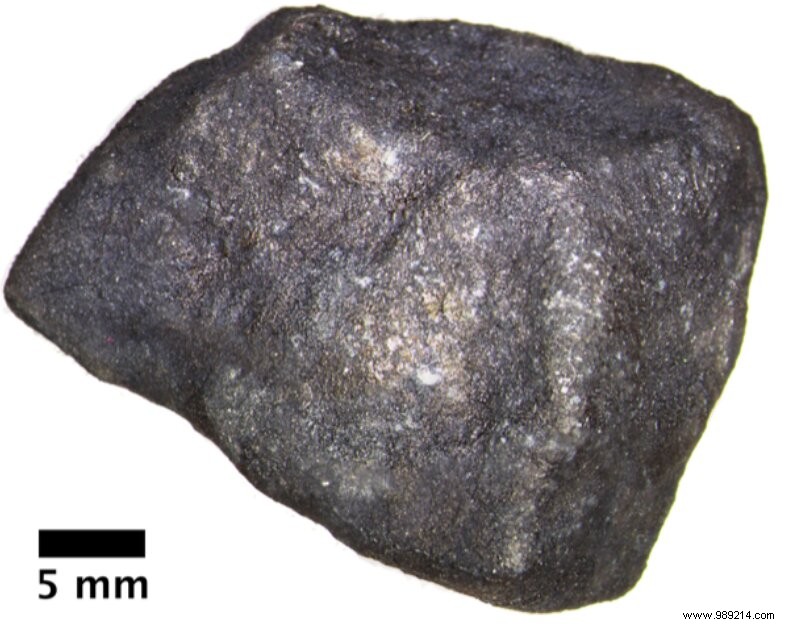A team of researchers announces that they have analyzed an almost unaltered meteorite that fell in Michigan two years ago. This work has made it possible to isolate thousands of organic compounds that may have participated in the development of life on Earth.
Through the play of celestial mechanics, many meteoroids encounter the Earth. Subjected to intense heat, the vast majority are burned in the atmosphere. Nevertheless, some of these objects still manage to pass. They are then called "meteorites". On the night of January 16, 2018, one of them swept the skies of the Midwest before landing on a frozen lake in Michigan (Strawberry Lake, United States).
Using NASA weather radar, meteor hunters tracked the speed and trajectory of the rock. In this way, they hoped to locate the probable location of its landing. One of them, Robert Ward, was finally able to recover the part in less than two days . In other words, fast enough that its chemical composition is not altered by contact with liquid water, which is very rare.
“As soon as you have water, the metal starts to rust and minerals like olivine are weathered “says Philipp Heck, curator at the Field Museum in Chicago and lead author of a new paper describing the meteorite. "Water also brings contaminants through the many fissures that typically criss-cross meteorites, fissures that formed when the meteorite was ejected from its parent asteroid in a previous impact event “.

This rapid recovery was therefore a boon for researchers, who naturally eagerly studied this small rock that fell from the sky while still "virgin". In other words, as it existed in space.
In this new article, Philipp Heck explains that he studied the object from every angle, relying on a variety of methods (microscopy, spectroscopy, different types of mass spectrometry , magnetometry and other computed tomography). These analyzes made it possible to identify the type of meteorite with which we are dealing:an H4 chondrite. For information, only 4% of all meteorites falling on Earth today fit into this category.
More interestingly, the object still contained "a rich inventory of uncontaminated extraterrestrial organic compounds “ , the same type of compounds that were likely delivered to early Earth by ancient meteorites, contributing to the appearance and development of life on Earth more than three billion years ago. In total, the team explains have isolated more than 2,600 .

Note that scientists do not know precisely how the (carbon-containing) compounds responsible for life on Earth got here. Nevertheless, one of the prevailing theories suggests that they did indeed fight their way on the back of meteorites .
“These compounds formed in the parent asteroid just after it formed, while it was still hot due to accretion and decay of elements radioactive materials that were still present in the early solar system “, explains Philipp Heck. "Even though there are meteorites, such as carbonaceous chondrites, which are a thousand times richer in organic matter, the fact that this one is full of it supports the hypothesis that meteorites played an important role in the contribution of organic compounds to the early Earth “.
Finally, it should be noted that even though it was quickly recovered, this meteorite still suffered "minimal contamination". The researcher stresses that the only really uncontaminated samples will be those collected directly from the asteroids. We then necessarily think of the materials collected by NASA's OSIRIS-REx probes (on Bennu) and the Japanese space agency's Hayabusa2 (on Ruygu), soon to return to Earth.